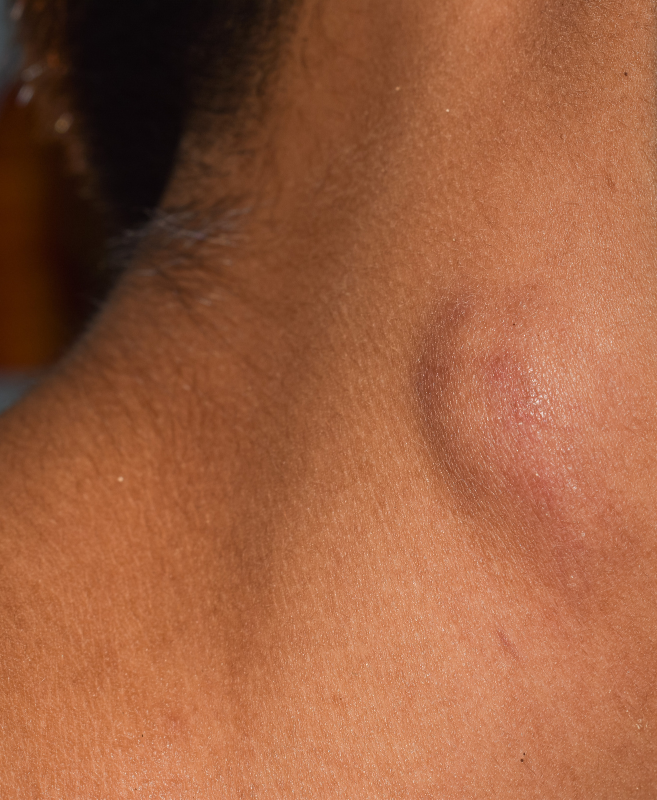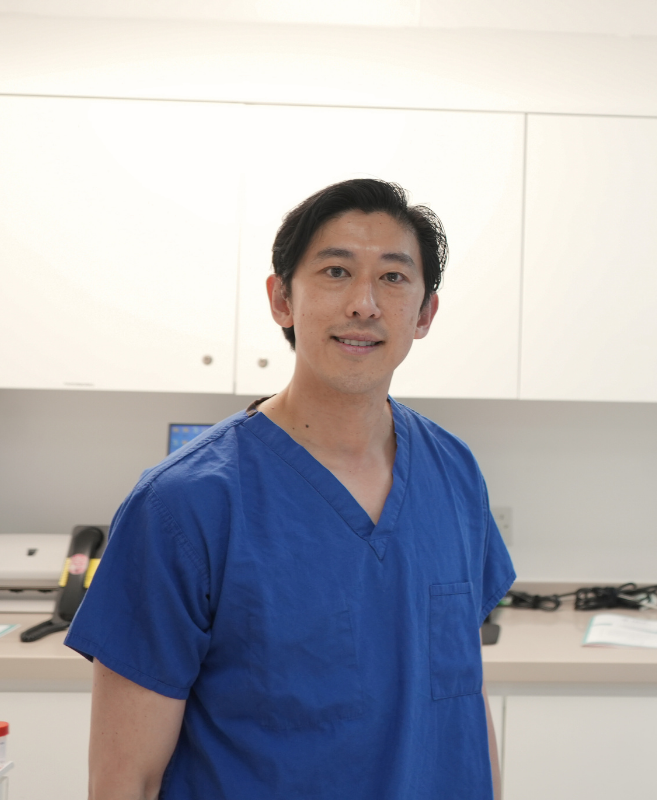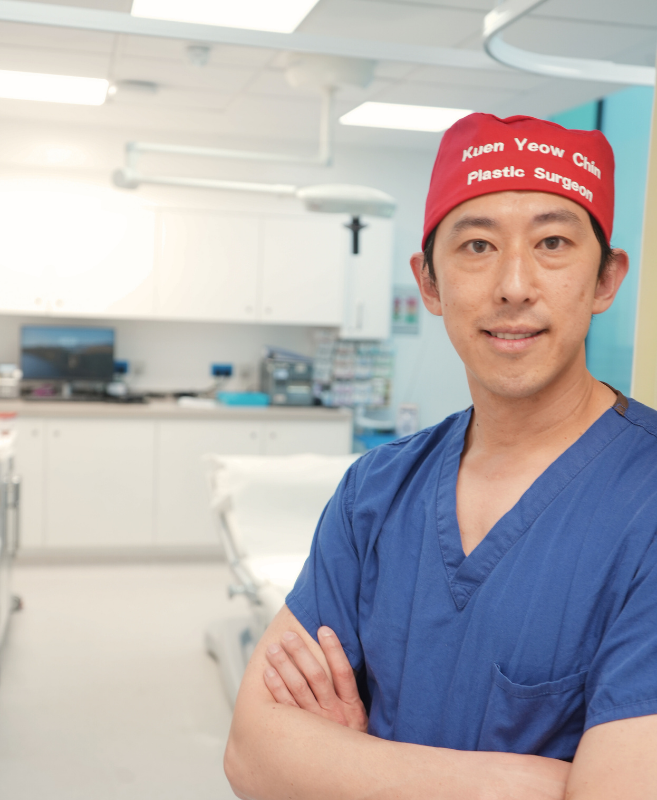Lymph Node Clearance Surgery for Skin Cancer
Specialist surgery to remove lymph nodes affected by skin cancer and reduce the risk of further spread.
What is Lymph Node Clearance?
Commonly referred to as: lymphadenectomy, lymph node dissection, melanoma lymph node surgery, cancer lymph node removal, nodal clearance procedure.
Lymph node clearance, also called full lymph node clearance or lymphadenectomy, is a specialist surgical procedure used to remove areas of the body where skin cancer has spread through the lymphatic system. Many patients wonder, what are lymph nodes and why does their removal matter?
Lymph nodes are small glands located throughout the body that play an essential role in the immune system. When skin cancer spreads, it often travels first to the nearby lymphatic tissue. Clearing these affected areas can help stop the disease from progressing.
At Apex Skin Clinic, this surgery is performed by experienced consultant plastic surgeons as part of an advanced cancer care pathway. The aim is to clear any lymph node cancer cells present in the area, improve cancer staging, and reduce the risk of further spread. This also helps your oncology team plan future treatments, such as immunotherapy or systemic therapy, where needed.
Our procedures are performed within a multidisciplinary oncology network, ensuring your care is fully integrated at every stage.
What Are The Benefits Of Lymph Node Clearance?
This surgery plays an important role in modern skin cancer care. By removing areas of potential disease spread, the operation helps to control the cancer locally. It also provides staging information that allows your oncology team to tailor any further treatments.
For some patients, the procedure can be curative. For others, it forms a key part of a wider cancer treatment plan. In all cases, it helps reduce the likelihood of further progression and supports your long-term outlook.
-
Your consultant will explain the goals of the procedure and provide guidance on preparing for surgery. You will attend a pre-operative assessment to review your general health, and fasting instructions may be given. You’ll be asked to arrange transport home in advance.
Your surgical team will also talk you through expected recovery time, the possibility of drains, and potential risks such as seroma, infection, stiffness, or lymphoedema. Early physiotherapy may be discussed to help reduce the risk of swelling following surgery.
-
Lymph node clearance is usually carried out as an inpatient procedure under general anaesthetic. Following surgery, most patients stay in hospital for one to two nights. The team will monitor your recovery, manage any drains, and provide guidance on wound care.
Depending on the area treated — such as the axilla, groin, or neck — the operation can take between one and a half to three hours. You will have a small wound dressing in place when you are discharged.
-
Once at home, you’ll be seen regularly for dressing changes, drain checks, and follow-up assessments. Your consultant will advise you on scar management and steps to minimise the risk of lymphoedema.
Careful monitoring for side effects such as fluid build-up, swollen lymph nodes, numbness or changes in sensation is also part of your recovery. If needed, you may be referred for early physiotherapy or lymphatic drainage, which can greatly reduce the likelihood of long-term swelling.
Most patients resume light activity within two to three weeks. For those who undergo axillary node clearance or groin surgery, recovery can take four to six weeks or more. Your consultant will provide personalised guidance on your progress and review your outcomes at follow-up.
Who Should Consider Lymph Node Clearance?
Lymph node clearance is advised when skin cancers such as melanoma or squamous cell carcinoma (SCC) spread into the lymphatic system. This may be confirmed after a positive lymph node biopsy, where cancer spread is found, or through imaging scans that show enlargement of lymph nodes.
Some patients are referred for surgery when they develop swollen lymph nodes or puffy lymph nodes that are palpable or causing symptoms. In some cases, swollen lymph nodes in neck regions are one of the first signs that further treatment may be needed.
Your consultant will carefully assess whether surgery is appropriate, taking into account your cancer stage, imaging results, and overall treatment plan.
How Lymph Node Clearance Works
Full lymph node clearance is performed under general anaesthetic. A carefully placed incision is made to access the relevant lymphatic system basin. The surgeon removes the targeted lymphatic tissue while preserving as much healthy structure as possible.
A surgical drain is usually placed to prevent fluid build-up, which is known as a seroma. The surgery typically lasts one and a half to three hours, depending on the extent of the clearance required.
Throughout the operation, the team ensures a meticulous approach to minimise risks and support an optimal recovery.
Frequently Asked Questions
-
Your consultant dermatologist or skin cancer surgeon will recommend lymph node surgery if tests suggest cancer spread to your lymph nodes, or if imaging shows signs of cancer spread. This decision is made as part of a personalised treatment plan with a multidisciplinary team discussed and can be carried out at Apex Skin Clinic.
-
Lymphoedema (swelling due to fluid build-up) is a known risk after lymph node clearance, especially in the groin or axilla. However, it is not always permanent. Early physiotherapy, compression therapy, and manual lymphatic drainage can significantly improve symptoms.
-
Lymph nodes are small, bean-shaped glands that help filter waste, toxins, and abnormal cells, including cancer cells, from the body. In cases of skin cancer, particularly melanoma or squamous cell carcinoma, lymph node clearance may be performed to remove affected or at-risk nodes and reduce the chance of cancer spreading.
-
Full lymph node clearance involves surgically removing all lymph nodes in a specific area, such as the neck, armpit (axilla), or groin, where cancer cells are suspected or confirmed. This is typically done when a sentinel lymph node biopsy has shown cancer presence.
-
Light activity can usually resume within 2–3 weeks. For more extensive procedures such as axillary node clearance, full recovery may take 4–6 weeks or longer, depending on the area and your overall health.
-
In some cases, yes, especially if the cancer is confined to the lymph nodes. Even when not curative, lymph node surgery helps assess how far the disease has spread and guide further treatment such as immunotherapy or radiotherapy.
-
If cancer is detected in more than one lymph node group (e.g. lymph nodes in neck and groin), your case will be reviewed by a multidisciplinary team including oncology specialists. Your treatment plan will be adapted to ensure the best possible outcome.
-
In select cases, sentinel lymph node biopsy, close imaging surveillance, or targeted radiotherapy may be considered alternatives. Your consultant at Apex Skin Clinic in Berkshire will explain all suitable options.
Apex Skin Clinic offers a consultant-led lymph node clearance for skin cancer at our private skin cancer & dermatology clinic in Berkshire Grove Hospital, Maidenhead.
We welcome patients from Windsor, Eton, Marlow, Slough, Ascot, and throughout Berkshire, London and Surrey, seeking expert care and effective surgical skin cancer treatments.
Find Lymph Node Clearance Near You
Lymph Node Clearance in Maidenhead, London, Eton and Beyond
Apex Skin Clinic provides expert lymph node clearance surgery at Berkshire Grove Hospital, Maidenhead. Our consultant plastic surgeons work alongside a multidisciplinary oncology team to offer comprehensive cancer care.
We welcome patients from Windsor, Eton, Marlow, Slough, Ascot, and across Berkshire, London and Surrey.




